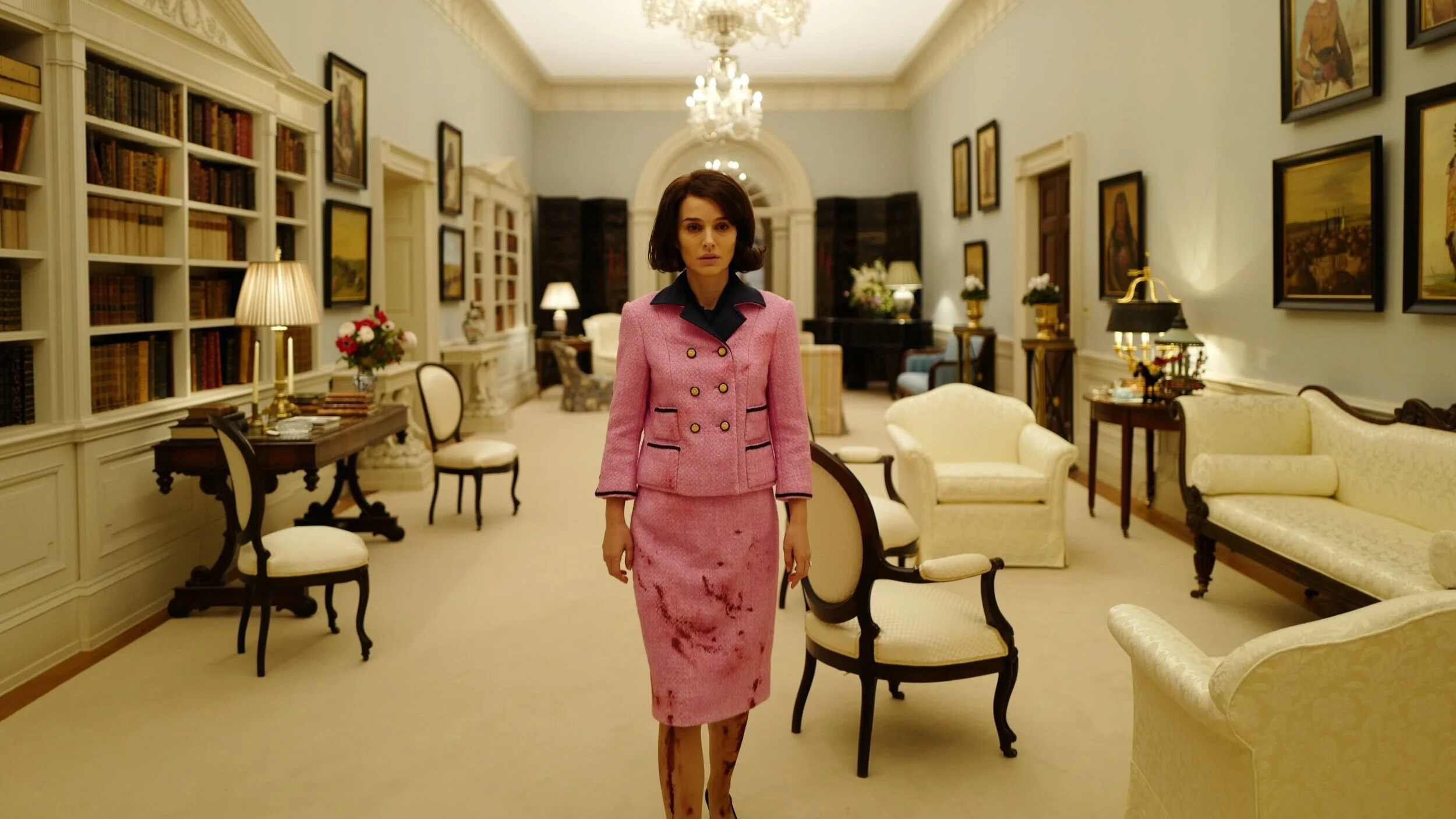Jackie
Natalie Portman is unforgettable as the well remembered Jackie Kennedy.
Natalie Portman
Until now every film touching on the assassination of President Kennedy in Dallas, Texas on 22nd November 1963 has focused on the killing itself, the conspiracy theories and the questions that have never truly been answered about that event. And that has been the case regardless of whether or not the film was presented as a documentary or as a dramatisation, from Rush to Judgment (1967) to the comparatively recent Parkland (2013). But, as its title implies, Jackie, intelligently written by Noah Oppenheim, is decidedly different despite the fact that, aside from some flashbacks mainly concerned with a television programme in which Jacqueline Kennedy had been hostess on a tour of the White House, it is exclusively concerned with the short period between the murder and the departure of the immediate family from 1600 Pennsylvania Avenue following the funeral.
The director of Jackie making his first English language film is Pablo Larraín but Jackie feels like a personal work, not some studio production taken on by an outsider (his editor is Sebastián Sepulveda with whom he worked on The Club and the photographer is French, Stéphane Fontaine). Deliberately intimate in its shooting style (there is much close-up work and the film eschews the ’Scope format now so common), Jackie is indeed a detailed portrait of Jacqueline Kennedy and few movies put such faith (wholly justified as it turns out) in their leading actress.
Natalie Portman has never been better. Her inward portrayal paradoxically provides total access while leaving open how one sees Mrs Kennedy. In scenes with an interviewer (Billy Crudup) she may emerge as formidably intelligent and knowing, but when it comes to her motivations in such matters as the grand funeral it is left to the viewer to decide (it could simply be a heartfelt tribute to JFK, yet it is also possible that it was done to assuage her sense of guilt for not having been able to protect him). Likewise, the justification or lack of it for making her two young children appear in public remains open. The questioning in this film, one which avoids clear-cut answers, extends even to whether the Kennedy era in America was truly great or more to be noted for its surface style than for its actual achievements.
A distinguished cast includes impressive supporting work from John Hurt in what is almost a cameo role as a priest but there are lesser opportunities for such players as Richard E. Grant and Greta Gerwig. In contrast, Crudup and Peter Sarsgaard (the latter as Bobby Kennedy) are able to make more substantial contributions. Less successful elements include the modern sounds of Mica Levi’s music score (her style being far better suited to 2013’s Under the Skin than to this) and the failure to give better shape to the last few minutes of the film. The conclusion also makes uncertain use on its soundtrack of the finale from the musical Camelot in contrast to an earlier brilliantly ironic sequence featuring Richard Burton’s recording of the show’s happy ever after song. But for the most part this is a very able, rather art-house work which in its central performance touches greatness.
MANSEL STIMPSON
Cast: Natalie Portman, Peter Sarsgaard, Greta Gerwig, John Hurt, Billy Crudup, Richard E. Grant, Caspar Phillipson, John Carroll Lynch, Beth Grant, Max Casella, Penny Downie.
Dir Pablo Larraín, Pro Juan de Dios Larraín, Darren Aronofsky Mickey Liddell, Scott Franklin and Ari Handel, Screenplay Noah Oppenheim, Ph Stéphane Fontaine, Pro Des Jean Rabasse, Ed Sebastián Sepulveda, Music Mica Levi, Costumes Madeline Fontaine.
Wild Bunch/LD Entertainment/ Why Not Productions/Bliss Media/Protozoa-Entertainment One.
100 mins. USA/UK/France/British Virgin Islands. 2016. Rel: 20 January 2017. Cert. 15.


